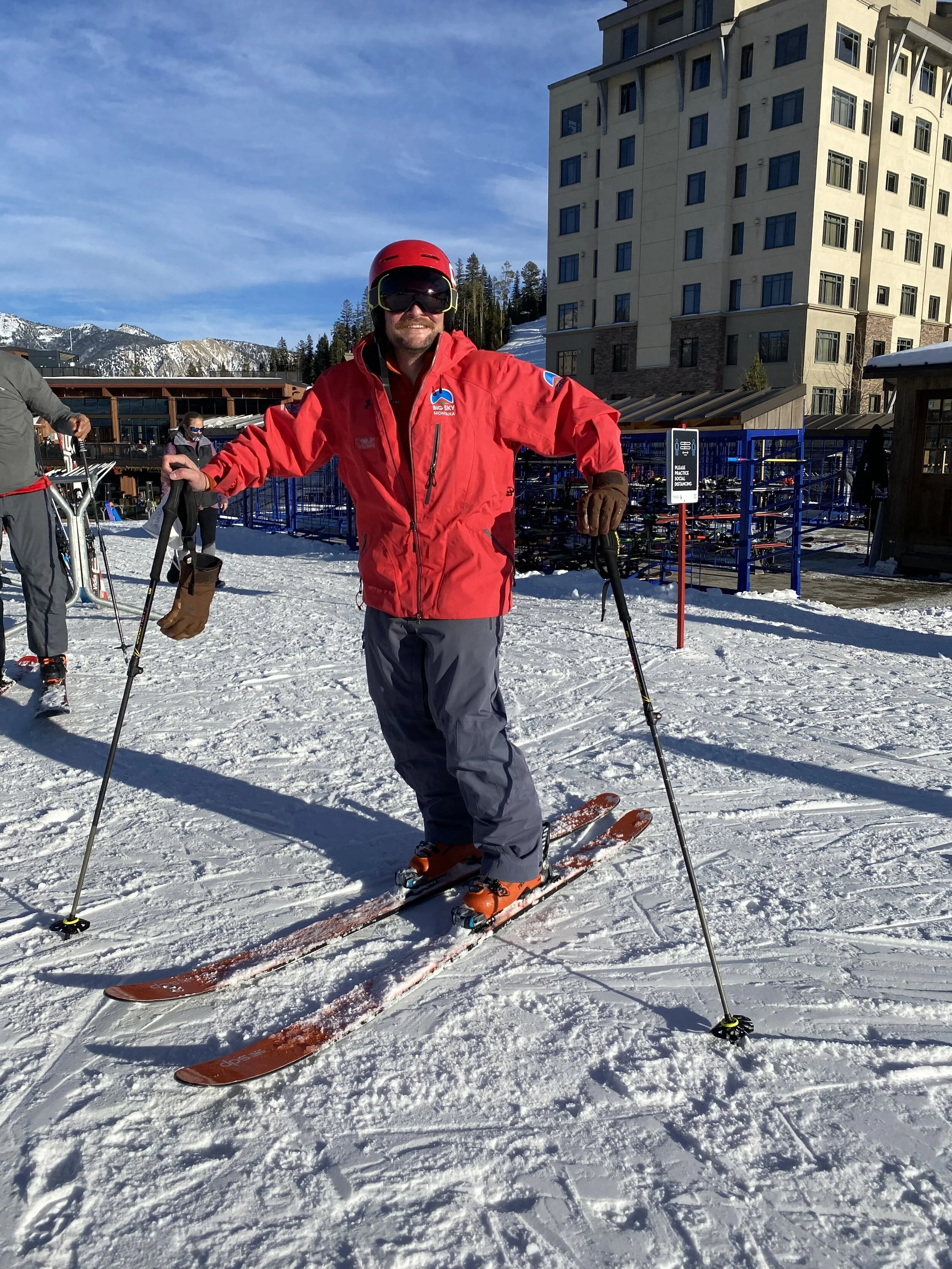5 things teaching skiing taught me about leading change
My first day in uniform
In December of 2020 I took a pause. After nearly two decades leading healthcare innovation teams, projects, and change efforts, I decided to try something different. From December to April I was a professional ski instructor in Montana. I’m immensely proud of the work I’ve done in healthcare, community health, and health equity. I’ve already returned to that world. But teaching skiing gave me a perspective on my experiences in healthcare I may not have otherwise gotten. Both healthcare innovation and skiing will continue to be parts of my life and I’m reflecting on how they have more in common that you might imagine.
I’ve been working with some organizations on healthcare strategy and innovation projects. As I shift gears back into that world, I’ve been thinking about the insights and experience of teaching skiing that forever transform how I approach my work and leadership style.
Here are five things teaching skiing taught me about leading change.
1. Ask the right questions early
How often do we start off on a project or endeavor without actually calibrating what we thinking we’re doing? A lot of words have really ambiguous meanings. What someone means by innovation could be anything from a faster version of project management to industry disrupting change. We also need to talk about speed. How fast does the team want to move? What’s the pace of change the organization can tolerate? Without asking the right questions first, we risk setting out on different journeys and, perhaps even worse, leaving people behind.
2. Reduce the feedback loop time
What happens when we set big goals with long timelines? Too often we miss the chance to check in to see if what we think is the right approach is, well… working. Reducing the time between listening, trying something, and asking for feedback is not only a recipe for a more successful project, it also feels really good!
Sometimes we just know when someone is barking up the wrong tree, right? But what happens when we look at that tree with curiosity? There’s value in trusting your gut on the validity of an effort, but failing to climb the tree can lead to a huge missed opportunity to see the world from a different perspective.
4. Surround yourself with people who want to see you level up
We can’t often control who we are surrounded by professionally. But we can chose how we want to treat them. Even in the most competitive environments, what might we gain by helping others level up?
5. Do scary things with people who make you feel safe
Psychological safety is the key to successful, creative, and happy teams. It doesn’t happen by accident. And when it is present, we are capable of doing terrifying things, safely, together.
